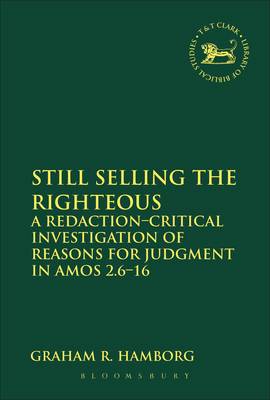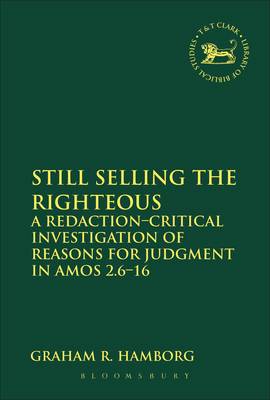
- Retrait gratuit dans votre magasin Club
- 7.000.000 titres dans notre catalogue
- Payer en toute sécurité
- Toujours un magasin près de chez vous
- Retrait gratuit dans votre magasin Club
- 7.000.0000 titres dans notre catalogue
- Payer en toute sécurité
- Toujours un magasin près de chez vous
Still Selling the Righteous
A Redaction-Critical Investigation of Reasons for Judgment in Amos 2.6-16
Graham R Hamborg
88,45 €
+ 176 points
Format
Description
This redaction-critical study interprets the reasons for judgment in Amos 2.6-16 in the literary context of each of the redactional compositions which, it is argued, underlie the Amos-text. It is proposed that the Amos-text is both a theological work and a tractate of social criticism. In earlier redactional compositions the dominant reasons for judgment concern mistreatment of the weak. In the later redactional compositions these are overshadowed, in terms of length of text, by more theological reasons for judgment; however, these strengthen, rather than weaken, the force of the older reasons for judgment.
Spécifications
Parties prenantes
- Auteur(s) :
- Editeur:
Contenu
- Nombre de pages :
- 304
- Langue:
- Anglais
- Collection :
- Tome:
- n° 555
Caractéristiques
- EAN:
- 9780567542205
- Date de parution :
- 07-11-13
- Format:
- Livre broché
- Format numérique:
- Trade paperback (VS)
- Dimensions :
- 156 mm x 234 mm
- Poids :
- 426 g

Les avis
Nous publions uniquement les avis qui respectent les conditions requises. Consultez nos conditions pour les avis.






